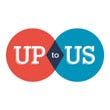Evan Malbrough: Bridging The Gap Between Democracy and Economics
Participatory budgeting could bridge between democracy and economics and expand what Americans vote for when they go to the polls. Oftentimes, we as citizens are removed from our local and state budgetary processes and leave it in the hands of those we elect to represent us. It is up to us to expand our democracy and create a system where parts of our budget is left directly in the hands of the people. There are 3141 counties in the United States of America[1], if we were able to take 3.141 billion dollars out of our 389 billion dollar debt we will have enough money to build a one million dollar participatory budget fund for each county.
Participatory Budgeting is defined as: “a process of democratic deliberation and decision-making, in which ordinary people decide how to allocate part of a municipal or public budget.”[2] This process directly links democratic principles with economic policy. Participatory budgeting would be a great way for non elected citizens to prioritize projects that may not be in the legislative docket in their area. A national adoption of participatory budgeting would increase national civic engagements and give citizens more stake in their community.
America is a representative democracy, we elect officials to represent us in governing bodies, who we hope have our best interest at heart. Many of these officials are tasked with setting our city, county, state, and national budgets, processes that are usually deliberated intensely. Historically, we as citizens are only able to watch these processes and provide our thoughts to those who represent us. In the end, it is up to the elected official to vote for what they believe is best. Participatory budgeting gives some of the power to average citizens so they can make the decisions.
Capital improvement is defined as: “the addition of a permanent structural change or the restoration of some aspect of a property that will either enhance the property’s overall value.” Many municipalities include short & long term capital projects to build and maintain public resources. Every community has libraries, parks, community centers, and schools. These public services are funded by property taxes and SPLOST. Due to the fact that different communities have different property values, many communities see their public services underfunded. If we as a country invest in a 1 million dollar participatory budgeting fund, we could help revitalize historically underserved communities through the ideas of the inhabitants of said community. Community members could campaign on allocating money to rebuild community centers and schools. They could also work to install new public services like community gardens.
With a one million dollars a community could fund and maintain things like:
● Neighborhood revitalization.
● Green infrastructure.
The options are endless and the best part about them is that they will be built in communities that choose them.
In his 1968 speech “Remaining Awake Through a Great Revolution.”, Martin Luther King Jr. said “We shall overcome because the arc of the moral universe is long but it bends toward justice.”[3] As citizens, It is not our job to just maintain and protect democracy, but also evolve it. Our founding fathers built an election system that started out as narrow and exclusionary. Throughout American history, each generation has expanded democracy to include women, Black People, Native Americans, People of Color, and young people. Adding a participatory budgeting element could be our generation’s contribution to the arc that leads towards justice Martin Luther King talked about.
A Pew Research study found that 9% of American voters in the 2016 presidential felt their vote did not matter[4]. The addition of participatory budgeting could help inspire voter confidence. A person could vote at a ballot box on November 3, and see what they voted for happen in their community the next year. It will also allow for people to make change in their communities without being elected officials. The key to a free and fair democracy is not just election administration but the people’s faith in the election. It is up to us to make sure we not only preserve the legacy of leaders like John Lewis and Martin Luther King Jr. and John Lewis, by expanding on them.
